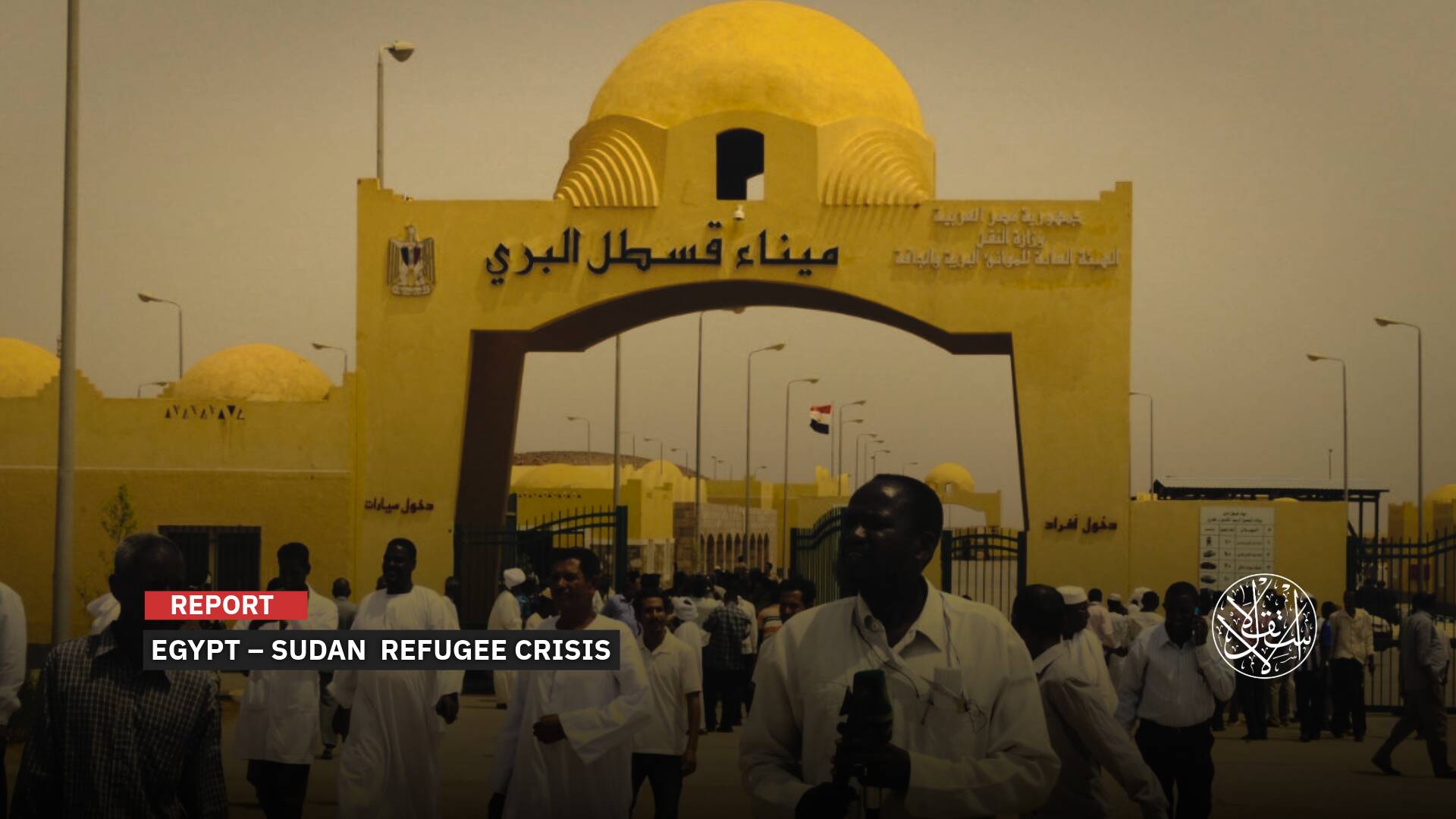Financial Alternatives or Temporary Surge? This Is How the Use of Cryptocurrencies Is Rising in Africa

“Nigeria stands out with a staggering 66.78% share in crypto interest.”
In light of the growing interest in the adoption of cryptocurrencies in different parts of the world, Africa stands out as one of the continents that shows great potential and a pressing desire to expand in this sector.
This is due to the movements of several African countries, the most important of which are Nigeria, South Africa, and Kenya, toward adopting cryptocurrencies and granting them legal status on the one hand, and the interest of the citizens of these countries in acquiring these cryptocurrencies and dealing through them as an alternative to traditional banking systems.
It is noteworthy that the widespread adoption of cryptocurrencies by Africans is not just a trend but rather a response to the various economic and social factors that the African continent and its financial system are suffering from.
Perhaps the available data, according to the Global Cryptocurrency Adoption Index (Chainalysis) for the year 2023, shows the noticeable surge in the adoption of cryptocurrencies on the African continent.
South Africa and Nigeria are among the African countries with the largest number of cryptocurrency users, according to a recent survey.
In 2022, Nigeria launched the eNaira, a digital currency, to test the operationalization of a Central Bank Digital Currency (CBDC).
In 2021, cryptocurrency transactions in Africa reached $20 billion per month, with a growth rate of 2,500%.
Financial Alternative
The increasing adoption of cryptocurrencies in Africa is due to several factors, the most important of which are the decline in economic stability, the decrease in the value of local currencies, the ease of dealing with them, and an attractive means of trade and investment. All of this comes in light of the political and security turmoil that the African continent has been witnessing for a long time.
The situation of rampant inflation and economic instability, and the resulting fluctuation in local currency prices, in light of the weakness of banking systems in a number of African countries, has generated the need for effective cross-border transactions.
Given this, cryptocurrencies represent a stable and decentralized alternative solution for weak financial systems and a versatile tool for individuals as part of the innovative solutions they provide to overcome the obstacles imposed by traditional financial systems.
Sending and receiving money is a common challenge in Africa, especially high transfer and exchange fees and slow processing times, so cryptocurrencies appear to be an attractive solution, as they facilitate cross-border transactions without the need for intermediaries such as banks or remittance services.
Recently, small and medium-sized businesses in Africa have begun to accept cryptocurrencies as a means of payment, catering to the needs of local and expatriate customers, taking advantage of the diversity of cryptocurrencies, and providing multiple payment options to customers.
During the recent period, cryptocurrency trading in Africa has become a widespread investment tool, especially after the success stories of its traders spread, in light of the increase in unemployment rates on the African continent, which has prompted an increasing number of Africans to explore ways to invest in this sector.
Since the innovative blockchain technology, which supports cryptocurrencies, provides a high degree of security, this makes it an attractive option in transactions that require high levels of trust and transparency in Africa, which is what international companies operating within Africa resort to.
It is noteworthy that the political turmoil and security tensions in some African countries have led to the strengthening of a lack of confidence in traditional financial systems. Therefore, cryptocurrencies are seen as a haven far from government control, protecting the wealth of Africans from the instability prevailing in those regions, which would expose their assets to the risk of being seized by any of the conflicting parties.
Africa is home to a large unbanked population, with millions of individuals lacking access to formal financial services due to the failure of traditional banking systems to reach remote areas, which creates an opportunity for cryptocurrencies to emerge as a vital alternative to financial inclusion, and a lifeline for basic financial transactions in rural areas, such as those found in Kenya and Nigeria.
Many of the continent's largest trading platforms were launched through South Africa, including Luno, owned by Barry Silbert's Digital Currency Group, and Pantera-backed VALR.
Other global platforms, such as Binance Holdings, also operate in South Africa, which has been the scene of some of the world's largest cryptocurrency fraud crimes.
The African cryptocurrency exchange Yellow Card Financial was the first company on the continent to obtain a license when Botswana issued it a license to operate in 2022.
South Africa intends to grant operating licenses to about 60 cryptocurrency platforms by the end of this month, making it among the first countries on the continent to require digital asset exchanges to obtain licenses.
Positive Steps
In recent years, a number of African countries have been exploring opportunities to leverage the benefits of cryptocurrencies.
Sub-Saharan Africa represents the smallest crypto economy among all regions keen to increase the adoption of cryptocurrencies in its economy.
It received $117.1 billion in crypto value from July 2022 to June 2023, per Chainalysis data, revealing the invasion of cryptocurrencies into the main markets in Africa.
Nigeria ranks second worldwide in cryptocurrency adoption at 66.78%, followed by South Africa at 8.36% and Ghana at 5.24%.
Nigeria is the largest African cryptocurrency economy and one of only six countries in the world's top 50 in terms of cryptocurrency transaction volume.
The two major recessions that Nigeria has fallen into since 2016, as a result of the unstable political situation, the Covid-19 pandemic, and the collapse of oil prices, may have contributed to high unemployment rates for more than 20 million people in 2021, which constituted an incentive for many to seek profit opportunities in cryptocurrencies.
Accordingly, in early 2023, the Nigerian government approved a national blockchain policy, towards further legalizing cryptocurrencies in the country, in light of the importance that cryptocurrencies enjoy in Nigeria's economy.
Cryptocurrency transactions accounted for about 12% of Nigeria's GDP, according to economic data released in June 2023.
Peepo, Liquidity, and Conflux are some of the most popular currencies in Nigeria.
Although in 2015 the Central Bank of Kenya (CBK) considered Bitcoin and its counterparts not to be legal currencies, over time Kenya has one of the highest global rates of ownership of cryptocurrencies, at 8.5%, making it among the top five countries that own cryptocurrencies.
As a result, in early 2023, the Kenyan government proposed a bill calling for a consistent definition of cryptocurrency securities and record keeping by licensed cryptocurrency traders, which represented a positive step towards further adoption of cryptocurrencies in Kenya in the future.

As part of the efforts of the country of Mauritius, with a population of 1.3 million, to promote the adoption of cryptocurrencies and attract traders, its government issued the first framework for licensing cryptocurrencies in Africa in 2021 as comprehensive legislation for the issuance of new tokens.
As of 2022, Mauritius is ranked 131st out of 157 countries adopting cryptocurrencies, and there are at least 23,208 cryptocurrency owners.
As for South Africa, it has transformed over the past years into a center for innovation in the field of digital finance, especially after prominent cryptocurrency exchanges pushed people to rely on digital currencies on a large scale through easy-to-use mobile applications.
The Financial Sector Conduct Authority (FSCA) has also officially classified cryptocurrencies in South Africa as financial products, which represents an important and additional step towards regulatory recognition of cryptocurrencies in the country.
According to the latest Cryptocurrency Adoption Index, conducted by Finder.com, Ghana stands 9th among 26 other countries in terms of adopting cryptocurrency, ahead of countries such as Singapore, Brazil, Norway, Canada, the United States, New Zealand, Germany, the United Kingdom and Japan.
In this regard, Ghana is showing great interest in promoting the growth and adoption of cryptocurrencies within the country.
Although cryptocurrencies are not regulated, they are not banned in the country but are widely accepted by companies that interact with cryptocurrencies.
In April 2022, the Central African Republic, which has been witnessing a civil war for 9 years, adopted Bitcoin as an official currency alongside the African franc, and legalized the use of cryptocurrencies, according to what the presidency announced.
According to a recent report by Triple A, about 10.34% of Nigerians own cryptocurrencies (about 22 million people), while at least 17.3% of adults in Ghana own cryptocurrencies (about 3.1 million adults), which is higher than the global average of 15% of adults who own cryptocurrencies, according to Finder.com.

Potential Risks
Despite the positive prospects of enhancing the African continent's interest in cryptocurrencies amidst the increasing demand for their acquisition and the promising future prospects for the adoption of cryptocurrencies in Africa, there are challenges that African governments need to address in order to achieve this goal.
The first of these challenges is the different, and sometimes conflicting, regulatory frameworks for cryptocurrencies in African countries, with some governments expressing their concerns about the potential risks behind the official adoption of cryptocurrencies in their economies.
This requires a high degree of coordination between the governments of African countries in developing appropriate regulatory frameworks in order to ensure smooth and unrestricted financial transactions between different countries.
As at 2023, a total of 23 African countries have banned or restricted the use of cryptocurrencies within their economies, stifling innovation in the area.
The major problem governments face when it comes to regulating tech is striking the right balance between safeguarding their economy from the consequences of poorly adopted technology and resisting the urge to over-regulate or under-regulate.

According to Forbes statistics, as of March 9, 2024, the cryptocurrency market reached $2.72 trillion, making it a promising year for cryptocurrencies.
The Cryptocurrency Market Size Report also indicated that global cryptocurrency ownership increased by 34% in 2023 alone, as 580 million people purchased cryptocurrencies in 2023.
On his part, Egyptian engineer Omar Fayoumi, who is interested in the cryptocurrency sector, explained in a statement to Al-Estiklal that "cryptocurrencies are an opportunity for developing African countries to be partially liberated from the restrictions of traditional financial systems, control their financial transactions, open borders to trade with the world, and attract investors."
"Blockchain and cryptocurrencies are a new technology, and they are a gateway to modernizing the economy and financial policy. Developing African countries must catch up with the new innovations that have swept the world and taken the economy to another level," he added.
"Cryptocurrencies are expected to play a role in promoting financial inclusion and innovation on the African continent in the coming years," Mr. Fayoumi concluded.
Sources
- Cryptocurrency Penetrates Key Markets in Sub-Saharan Africa as an Inflation Mitigation and Trading Vehicle [Report]
- Cryptocurrency Adoption in Africa
- Top Crypto Use Cases In Africa: Why is Crypto Gaining Traction in Africa?
- Crypto Regulation In Africa: Here Are Seven Nations And Their Regulatory Stance In The Last Five Years
- Finder Cryptocurrency Adoption Index [Study]
- In developing and emerging countries, bitcoin exchanges have become a valid alternative to banking systems [French]
- The future of fintech regulations
- LocalBitcoins and Paxful CombinedSub Saharan Africa
- South Africa Set to License 60 Crypto Platforms by Month-End










